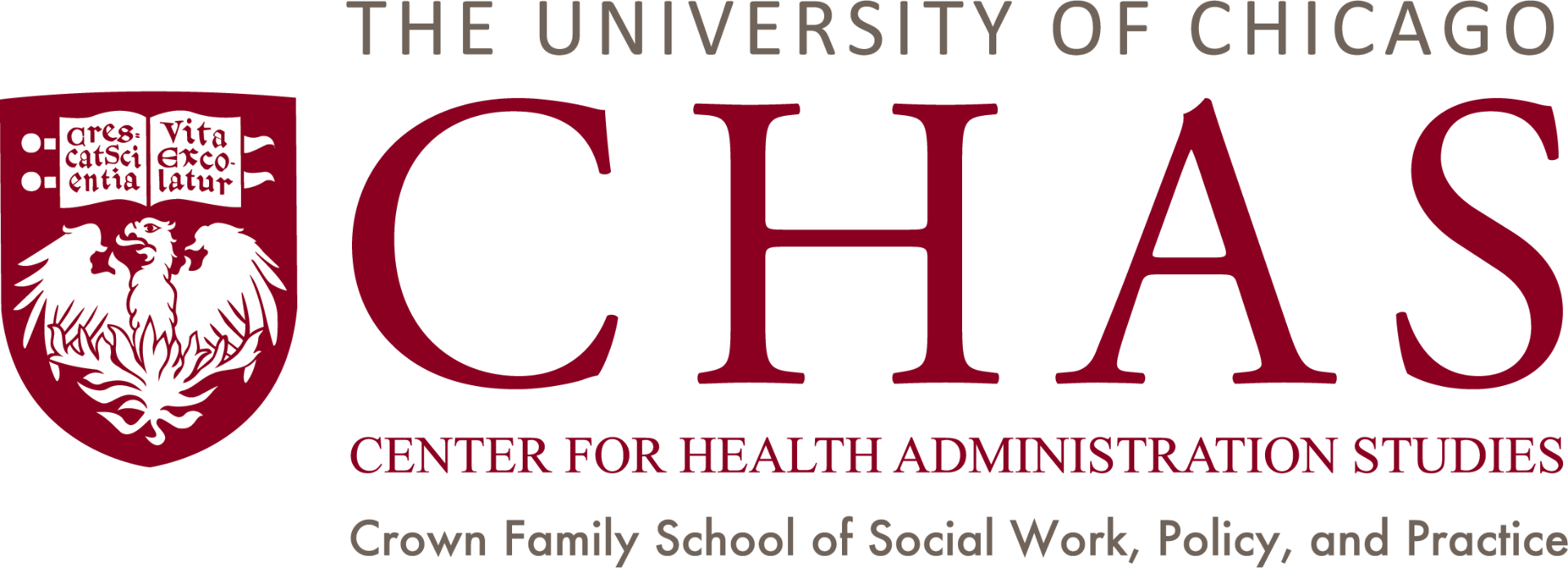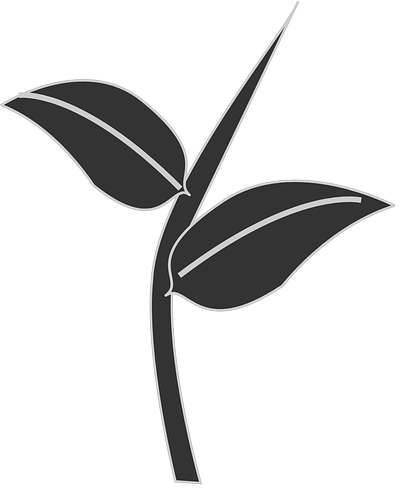ABOUT CHAS SEED GRANTS
The Center for Health Administration Studies (CHAS) at the Crown Family School of Social Work, Policy, and Practice is proud to offer our Seed Grant program. This program aims to support promising health services and policy research projects at the University of Chicago by providing modest research funding for a limited time (two years) to enable eligible investigators to explore the feasibility of a concept related to the mission of the Center and generate sufficient data to pursue it through other funding mechanisms. CHAS seeks to fund projects that display sound research design with high potential impact on health services and policies affecting the disadvantaged.
EXPECTATIONS
Annually, CHAS anticipates budgets no greater than $30,000 for a 24 month period. Indirect costs will not be covered. Projects are to be conducted over a 24-month period beginning in July. Seed award recipients will provide a written final report within 30 days of the project end date. Final reports will be due by July 31st, two years and one month after start date. A presentation about the funded seed project will also be expected from each award recipient, either during or subsequent to the funding period. Furthermore, all investigators will also be expected to attend/participate in the CHAS Davis lecture series on Tuesdays from 12:30 p.m. – 1:50 p.m. during the duration of the project period. After completion of the Seed award project period, all award recipients are strongly encouraged to become an active participant in future CHAS-sponsored seminar series, events and collaborations.
ELIGIBILITY
All eligible investigators must be independent investigators at The University of Chicago and faculty appointments are required. Postdoctoral fellows, or their staff equivalent, are not eligible. Each study grant proposal should state clearly the justification for eligibility of the investigator under one of the above three criteria. Although the lead investigator must be affiliated with The University of Chicago as a faculty member appointee, consultants may be drawn upon from other institutions. Priority is given to junior investigators and to those lacking other “pilot and feasibility” type support from the University of Chicago.
TIMELINE
Seed Application Due: May 31, 2024
Awards Announced: mid-June
Account Start Date: July 1 (annually)
Account End Date: 24 months after the project start date (June 30)
Final Report Due: 30 days following end date
Davis Lecture Presentations:
FALL SERIES: October – November
SPRING SERIES: April – May
APPLICATIONS FOR 2024 NOW BEING ACCEPTED.
APPLY
Please apply online through the University of Chicago Funding Portal.
Once on the portal website, you will need to log-in or create an account. Within the portal, you should be given a list of funding opportunity’s for which you are eligible. Locate the CHAS Seed Grant link and click the green button to the side of it that reads “Create Application”. If no green button appears, please come back when the application is open as listed on the portal.
Reminder: proposals should be substantively different from any previous year’s proposal to the CHAS seed program. Questions or concerns can be sent to chas@crownschool.uchicago.edu.
REVIEW CRITERIA
A panel appointed by the CHAS Director will review applications. The review panel, consisting of senior faculty at the University of Chicago and investigators at other institutions with pertinent expertise, will conduct reviews and awards will be announced in early June. Applications will be rated based on: relevance to mission of CHAS, importance of research question, scientific merit, feasibility of the research plan in the time allotted originality, and the contribution of “seed” funding to the pursuit of additional funding.
Reviewers will be asked to give priority to projects that:
- Develop innovative areas of inquiry.
- Facilitate research of junior investigators and trainees.
- Increase involvement of established faculty who have worked outside traditional health areas.
- Provide novel sources of primary data or the collection of pilot data.
A proposed project should present a testable hypothesis and clearly delineate the question being asked, detail the procedures and approaches to be followed, and discuss how the data will be analyzed. Projects should be focused, and the review committee may reduce funded budgets based upon review. Since funding for these studies is modest, projects should be focused to fully spend a budget no greater than $30,000. Any one investigator is eligible only once for this support, unless the additional proposed project constitutes a real departure from his/her ongoing research. The cost and economy of the proposed project will also be considered.
PAST SEED PROJECTS
2023 Recipients
- Joseph Dov Bruch, PhD: “The Effects of Credit Access from Traditional Lenders on Hospital Visits for Medicaid Beneficiaries and the Impacts on Black and Hispanic/Latinx Americans”
- Sharmilee M. Nyenhuis, MD: “Documentation of Negative Descriptors in a Pediatric Electronic Medical Record”
2022 Recipients
- Boaz Keysar, PhD: “How Language Use Influences Blood Donation Behavior”
- Miwa Yasui, PhD: “Examination of the Intergenerational Transmission of Mental Health Beliefs and
Help Seeking Behaviors Among Asian Americans” - Alan Zarychta, PhD: “Frontline Health Workers and Integration of Syrian Refugees in Turkey”
2021 Recipients
- Joshua D. Gottlieb, PhD: “Do Medicaid Payment Hassles Harm Patient Care?”
- Robert Kaestner, PhD: “The Effect of Health Insurance on Racial/Ethnic Disparities in Mortality of Near Elderly”
- Anna Volerman Beaser, MD: “Gender Representation on National Institutes of Health Study Sections: A Longitudinal Study to Understand the Impact of the Pandemic and Inform Policy”
2020 Recipients
- Marc Berman, PhD: “Prioritizing Urban Green Infrastructure (UGI) to Reduce Heat, Improve Human Self-control and Reduce Crime”
- Gina Fedock, PhD: “Baby Talk in Prison: Examining Outcomes of a Home Visiting Program for Incarcerated Mothers”
- Angela Garcia, PhD: “Hidden Inequalities: COVID-19 and the Well-Being of Poor and Racialized Chicagoans”
-
Valerie Press, MD, MPH: “Quality of Care of Hospitalized Patients with COPD Post HRRP”
2019 Recipients
- E. Summerson Carr, PhD: “Dogs in Human Services: The Impact of Animal-Assisted Therapy on Health Organizations”
- Zhiying Ma, PhD: “Needs Analysis of Children with Disabilities in Rural China: An Exploratory Study”
- Amber Truehart, MD, MS: “Exploring Provider and Patient Perspectives on a Novel Contraceptive Methods Counseling Tool”
-
Miwa Yasui, PhD: “Residual Effects of Trauma by Focusing on the Intergenerational Transmission of Trauma”
2018 Recipients
- Yanilda Maria Gonzalez, PhD, MA: “Right to the City: Can a Municipal Identification Card Unlock the Door to Urban Well-being and Inclusion in Chicago?”
- Boaz Keysar, PhD, MA: “Consequences of Foreign Language Use on Medical Decision Making”
2017 Recipients
- Leyla Ismayilova: “Feasibility Testing of a Family-Focused Mental Health Prevention Program for Families of Institutionalized Children in Azerbaijan”
- Miwa Yasui: “Examining Cultural Thresholds of Mental Health Need Among Asian American and Immigrant Children and Families”
- Alan Zarychta: “Temporal Dynamics of Health System Reform: A Pilot Study in Honduras”
2016 Recipients
- Gina Fedock: “Suicidal Behaviors in Prisons: Exploring Racial and Gender Disparities, Prison Responses, and Outcomes”
- Angela Garcia: “Waiting for Reform: Uncertainty and Undocumented Mexicans’ Mental Health”
- Fabrice Smieliauskas: “Racial disparities in Predictive Biomarkers, Access to Precision Medicine, and Cancer Outcomes”
2015 Recipients
- Anna Volerman: “Factors That Impact the Implementation of Asthma Policy in Schools”
- Brandon J. Hill: “Public Health Messages and STI/HIV Risk Perceptions Among Young Mean Who Have Sex With Men (YMSM)”
- Evan Lyon: “Homemakers and the Home Care Comprehensive Care Physician (HC-CCP) Program”
- Julie Chor: “Exploring a Missed Opportunity to Engage Women in Preventive Reproductive Health Care”
- Milda Saunders: “Pay-for-Performance in Dialysis Facilities: Improving Quality or Increasing Inequality”
- Rena M. Conti: “Prescription Drug Out of Pocket Costs and Adherence Among Patients Treated at 340B Contract Pharmacies”
- Tina L. Rzepnicki & Curtis McMillen: “Partnerships to Advance Quality Services”
2014-2015 Recipients
- Jennifer Bellamy: “The First Time Fathers Healthcare Study”
- Jennifer E. Mosley: ” How Collaborative Governance Networks Influence Service Innovation, Regional Coordination, and Advocacy for the Homeless”
- Leyla Ismayilova: ” Developing an Integrated Family-Based Mental Health Prevention Program for Institutionalized Children in Azerbaijan”
- Marci A. Yabarra: ” Do State Medicaid and WIC Rules Influence Maternity-Leave Job Quitting by Less-Educated Mothers?”
- Matthew W. Epperson: “Criminal Risk Factors Among Persons with Serious Mental Illnessess in Mental Health Treatment”
2013-2014 Recipients
- Alida Bouris: “Family and School Engagement to Protect Gay Youth of Color from HIV”
- Dexter Voisin: “Factors that Mediate and Moderate the Relationship Between Community Violence Exposures and Risky Sex Among African American Adolescents”
- Miwa Yasui: “An Exploratory Study of Cultural Pathways of Engaging in Mental Health Treatment Among Asian and Latino Immigrant Families”
For detailed questions on a planned proposal, please email chas@crownschool.uchicago.edu.

